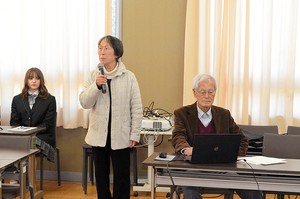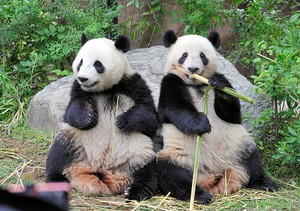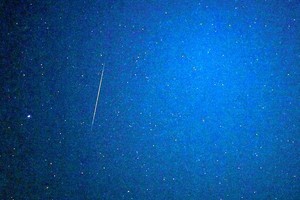THE ASAHI SHIMBUN
March 23, 2023 at 15:04 JST
 Masumi Shimizu announces his resignation as the president of Nippon Academy in Maebashi, Gunma Prefecture, on March 22. (Sakura Kawamura)
Masumi Shimizu announces his resignation as the president of Nippon Academy in Maebashi, Gunma Prefecture, on March 22. (Sakura Kawamura)
MAEBASHI, Gunma Prefecture--The president of a local Japanese language school officially resigned after coming under fire for calling his Ukrainian students “elite refugees.”
But Masumi Shimizu refuses to say he is sorry over his comments and maintains that the “prefectural government is doing far more than it should” to support them.
Nippon Academy announced Shimizu’s resignation on March 20, pledging to restore public trust through improved corporate governance.
The school has accepted 38 Ukrainian students since May 2022, shortly after Russia invaded the country.
Some of the students protested when the academy demanded they pay tuition, despite that it initially promised them free education.
Shimizu argued that offer was temporary and only designed to last until the students became financially independent--but not for six months or a year, as the students maintain.
When he was making his case, Shimizu said the Ukrainian students are aristocratic refugees, a privileged class of asylum seekers who enjoy free rent and tax exemptions while Asian students are struggling to get by on their own.
After the comments generated public backlash, the prefectural government reprimanded the school on March 15, ordering it to take steps to prevent a recurrence and improve its corporate governance.
Shimizu said members of the school’s managing board suggested he resign.
(This article was written by Sakura Kawamura and Tatsuro Sugiura.)




















A peek through the music industry’s curtain at the producers who harnessed social media to help their idols go global.
A series based on diplomatic documents declassified by Japan’s Foreign Ministry
Here is a collection of first-hand accounts by “hibakusha” atomic bomb survivors.
Cooking experts, chefs and others involved in the field of food introduce their special recipes intertwined with their paths in life.
A series about Japanese-Americans and their memories of World War II